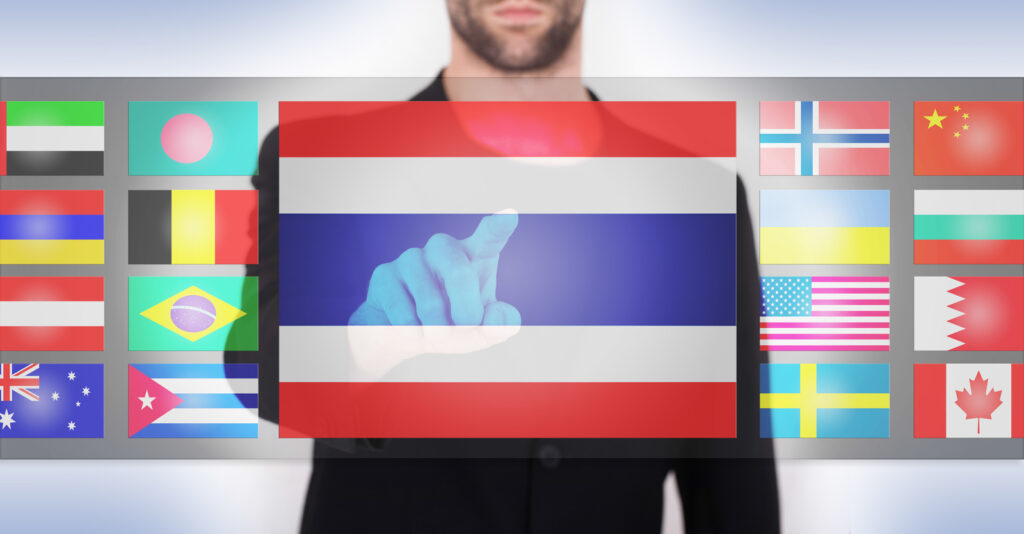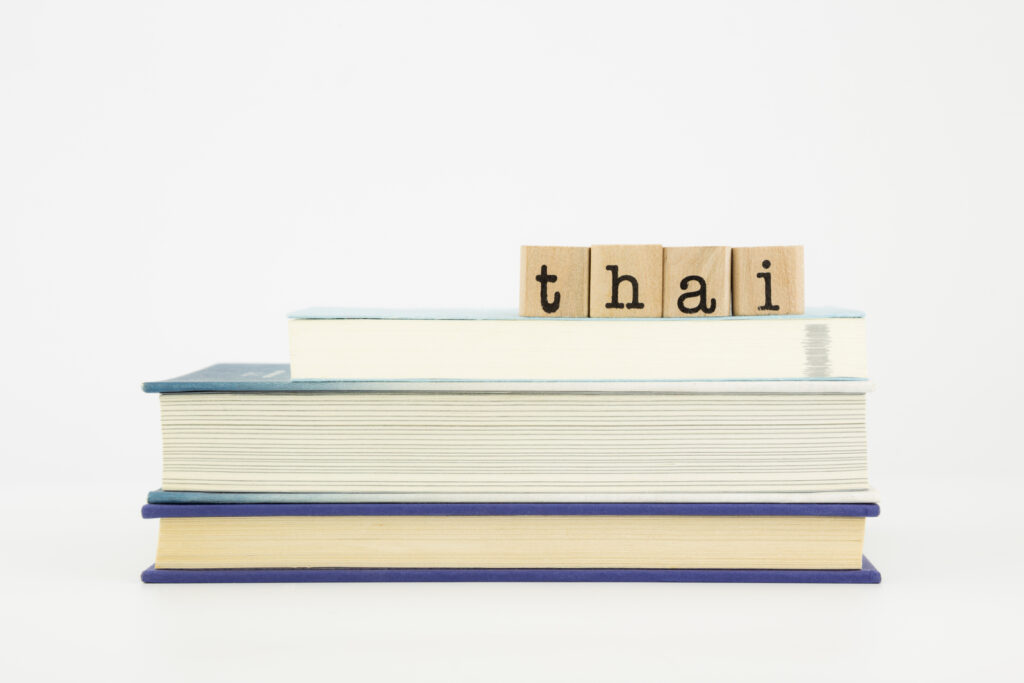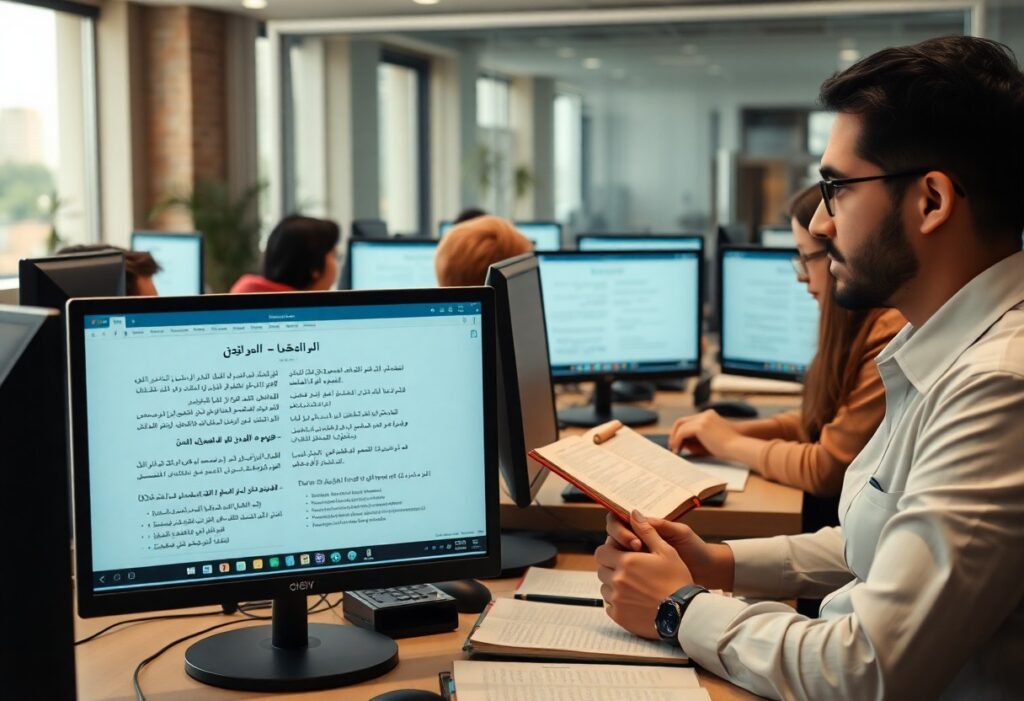Just as language is a bridge to understanding cultures, enhancing your skills in English translation to Thailand language can significantly improve your communication with Thai speakers. By implementing a few practical techniques and strategies, you can elevate your translation proficiency, ensuring your messages are both accurate and culturally relevant. In this blog post, you’ll discover simple tricks to refine your ability in English translation to Thailand language, empowering you to convey your thoughts more effectively and connect with your audience on a deeper level.
Understanding Thai Language Nuances in English Translation to Thailand Language
As you navigate the world of English translation to Thailand language, it’s necessary to grasp the nuances that define Thai communication. The Thai language is rich with tone variations, local dialects, and idiomatic expressions that can significantly alter meanings. By familiarizing yourself with these subtleties, you can ensure that your translations are not only accurate but also resonate with your Thai audience, enhancing the effectiveness of your communication.
Cultural Context and Its Importance in English Translation to Thailand Language
Cultural context plays a pivotal role in English translation to Thailand language. Understanding local customs, societal values, and cultural references can help you avoid misinterpretations and foster better connections with your audience. This knowledge allows you to tailor your messages appropriately, ensuring they align with the expectations and sensibilities of Thai readers.
Common Language Pitfalls in English Translation to Thailand Language
Language barriers can lead to common pitfalls when translating from English to Thailand language. You may encounter challenges such as false cognates, varying idiomatic expressions, and tone discrepancies that can alter the intended message. These elements can cause miscommunications and dilute your original intent.
Indeed, addressing these common language pitfalls requires vigilance and adaptability in your translation process. It’s necessary to consider not only word-for-word translations but also the overall tone and cultural implications of your message. Engaging with certified linguists who specialize in English translation to Thailand language can provide you with invaluable insights into potential pitfalls and help ensure that your translations maintain accuracy and cultural relevance.

Effective Translation Techniques for English Translation to Thailand Language
Now, mastering effective translation techniques is crucial for anyone looking to excel in English translation to Thailand language. These techniques not only enhance your translation skills but also ensure that your work resonates well with Thai audiences. By focusing on accuracy, cultural relevance, and appropriate tone, you can significantly improve the quality of your translations. As you practice, consider incorporating technology and resources to streamline your processes and achieve exceptional results, just like MovaPro Translations does for clients seeking high-quality language solutions.
Direct vs. Dynamic Translation in English Translation to Thailand Language
Before you investigate translating, it’s important to understand the difference between direct and dynamic translation. Direct translation involves a word-for-word approach, which may preserve the original message but can often lead to awkward or unclear phrasing in Thai. On the other hand, dynamic translation focuses on conveying the essence and intent of the original text, allowing for more natural and culturally appropriate expressions. This technique is particularly beneficial in your English translation to Thailand language endeavors, ensuring that your message connects effectively with the local audience.
Using Idiomatic Expressions in English Translation to Thailand Language
Translation of idiomatic expressions can greatly enhance your English translation to Thailand language. These phrases often hold unique meanings that cannot be captured through literal translations, making it vital to understand their usage in context. Idioms can add depth and cultural resonance to your translations, reflecting the nuances of the Thai language.
But, utilizing idiomatic expressions requires a solid grasp of both languages and cultures. You must be aware of which idioms are appropriate in specific contexts and how they resonate with your target audience. This knowledge not only helps convey your message accurately but also enriches the overall quality of your translations. As you refine your skills, consider studying common Thai idioms and their equivalents in English to further enhance your proficiency in English translation to Thailand language.
Resources for Improvement in English Translation to Thailand Language Skills
Even if you feel confident in your abilities, there are always resources available to enhance your skills in English translation to Thailand language. From books to digital platforms, taking advantage of these learning tools can provide new insights and techniques that will elevate your translation competence. Engage with a variety of materials to deepen your understanding of both languages and cultures, ensuring that every translation is as accurate and compelling as possible.
Recommended Books and Online Courses for English Translation to Thailand Language
Along with traditional learning methods, consider exploring recommended books and online courses designed specifically for English translation to Thailand language. Titles focusing on translation theory, cultural context, and specialized vocabulary can provide you with the necessary knowledge to improve your skills. Online platforms offer interactive courses that allow for flexibility, enabling you to learn at your own pace while still receiving expert guidance.
Language Exchange and Practice Platforms for English Translation to Thailand Language
Online language exchange and practice platforms can transform your learning experience in English translation to Thailand language. These platforms allow you to connect with native Thai speakers eager to learn English, facilitating mutual language practice and cultural exchange. Engaging in conversations with native speakers is invaluable, as it exposes you to colloquial expressions and nuances often overlooked in traditional study.
But it’s not only about practicing vocabulary; language exchange platforms also create opportunities to seek feedback on your translations, letting you refine your skills in real-time. By actively participating in discussions and collaborative exercises, you build your confidence in translating English to Thai and deepen your understanding of both languages. Utilizing these platforms can undoubtedly accelerate your mastery of English translation to Thailand language.
Tools and Technology for Translators: Enhancing Your English Translation to Thailand Language Skills
Despite the complex nature of language translation, leveraging the right tools and technology can significantly boost your skills in English translation to Thailand language. By utilizing advanced software and online resources, you can enhance your efficiency, improve accuracy, and better understand cultural nuances, all of which are crucial for effective communication with your target audience.
Translation Software and Applications for Your English Translation to Thailand Language Projects
Along with traditional translation methods, modern translation software and applications can streamline your English translation to Thailand language tasks. Tools like CAT (Computer-Assisted Translation) software offer features that help you manage terminology, maintain consistency, and speed up the translation process, ultimately leading to higher-quality outcomes for your projects.
Glossaries and Terminology Databases in Your English Translation to Thailand Language Journey
Technology plays a vital role in the creation and utilization of glossaries and terminology databases, which are invaluable for your English translation to Thailand language endeavors. Having access to these resources ensures that you use the correct terms in context, enhancing the accuracy and professionalism of your translations.
It’s crucial to build your own glossaries and utilize existing terminology databases to ensure a refined approach in your English translation to Thailand language projects. These collections of industry-specific terms will not only help you avoid errors but also promote consistent terminology usage across various documents. By actively engaging with glossaries, you will deepen your understanding of specific vocabulary, making your translations resonate more with your target audience and reflecting cultural nuances effectively.
Practical Exercises to Enhance Your English Translation to Thailand Language Skills
Keep practicing regularly to improve your English translation to Thailand language skills. Engaging in practical exercises can help you build confidence and ensure that your translations resonate with the target audience. Incorporate diverse materials like legal documents or marketing texts to gain experience in different contexts. This approach will enhance your ability to convey messages accurately and culturally appropriately, crucial in the translation business.
Daily Translation Practice for Your English Translation to Thailand Language Skills
For effective improvement, set aside time each day for focused translation practice. Choose a mix of texts, including articles, manuals, or even social media posts, and translate them into Thai. Take note of various expressions and terminologies that arise during this exercise, as they will enrich your vocabulary and enhance the quality of your work. Consistency is key to mastering the English translation to Thailand language.
Engaging with Native Speakers to Enhance Your English Translation to Thailand Language Skills
Practice engaging with native speakers to refine your skills in English translation to Thailand language. This interaction will expose you to authentic speech patterns and local idioms that can significantly improve the cultural nuances in your translations. Consider joining online forums, language exchange events, or local cultural gatherings. By immersing yourself in conversations, you will better understand contextual usage and enhance your overall translation proficiency.
Another effective way to engage with native speakers is by participating in language exchange platforms or communities. These interactions provide invaluable opportunities for real-time feedback on your translations and allow you to ask questions about colloquial expressions, pronunciation, and cultural references. Engaging in dialogue not only boosts your confidence but also sharpens your ability to produce high-quality translations that resonate with your audience. Incorporate this practice into your routine to enhance your English translation to Thailand language skills efficiently.

Developing a Personal Translation Style for English Translation to Thailand Language Skills
Your personal translation style is crucial for conveying messages effectively in English translation to Thailand language. Embrace your unique approach, allowing your personality and authenticity to shine through in your translations. By refining your style, you’ll create a more engaging and relatable tone that resonates with Thai audiences, enhancing your overall effectiveness in communication.
Finding Your Voice in Translation
Across various contexts, finding your voice in translation means discovering how you express ideas uniquely and clearly. This involves developing a consistent tone and style that aligns well with your target audience’s expectations. As you explore different styles, consider factors such as formality, local cultural nuances, and the emotional impact of your translations. Cultivating your voice will make your English translation to Thailand language more recognizable and relatable.
Approaches to Different Text Types in English Translation to Thailand Language
One approach to translating different text types involves understanding the purpose and audience of each document. Every text requires a unique strategy to convey its message effectively. For example, legal texts demand precision and clarity, while marketing materials benefit from a persuasive tone. Here are some types and approaches you might consider:
| Text Type | Approach |
| Legal Documents | Focus on precision and adherence to legal terminology. |
| Medical Records | Translate with clarity and accuracy, considering patient safety. |
| Technical Manuals | Use straightforward language to ensure user-friendliness. |
| Marketing Materials | Incorporate culturally resonant phrases to connect emotionally. |
| Literary Works | Preserve the author’s voice while adapting to cultural differences. |
After identifying the text types, you can refine your English translation to Thailand language skills by adopting varied approaches to each document. Here’s a quick look:
- Analyze the audience’s expectations.
- Determine the tone and style necessary for the text.
- Adapt culturally relevant references for greater impact.
- Balance between literal translation and contextual meaning.
- Review and edit to ensure clarity and coherence.
For instance, when translating marketing materials, consider the emotional undertones that will resonate with your Thai audience. The approach you take should be tailored based on the type of content and its intended impact. Here’s a breakdown of potential methods:
| Text Type | Translation Method |
| Advertisements | Create catchy phrases that appeal to local sensibilities. |
| Social Media Posts | Utilize informal language for relatability and engagement. |
| Blogs | Incorporate storytelling techniques to maintain interest. |
| Website Content | Focus on SEO strategies to increase visibility. |
| News Articles | Prioritize objectivity and factual correctness. |
After establishing these strategies, you’ll enhance your skills in English translation to Thailand language, fostering better connections with your audience.
Final Words: Simple Tricks to Improve Your English Translation to Thailand Language Skills
Ultimately, enhancing your English translation to Thailand language skills requires a blend of practice and awareness. You can start by immersing yourself in Thai culture, which will help you understand context and nuances. Utilize resources such as online courses, language apps, or bilingual books to broaden your vocabulary. Engage with native speakers to refine your conversational skills and seek feedback on your translations. The more you incorporate these strategies, the more proficient you’ll become in accurately conveying your messages through English translation to Thailand language, making your communication more effective.



